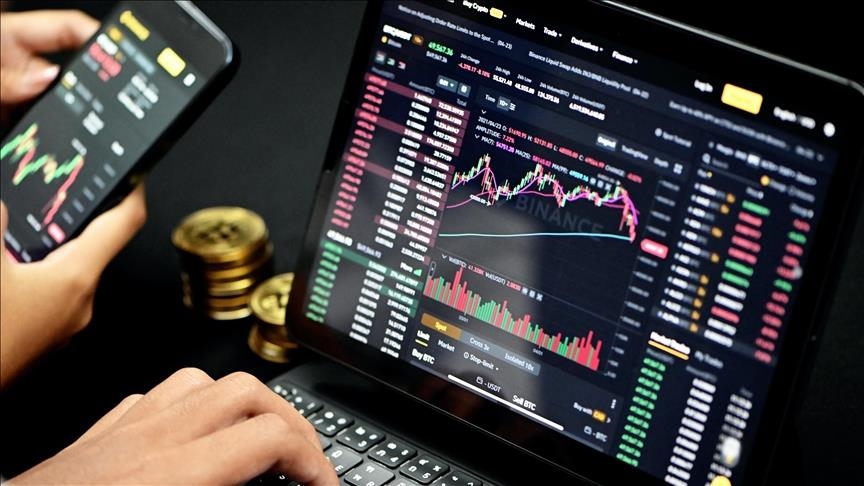ANKARA
Türkiye’s preparations for regulating crypto assets are nearly finished, the Turkish Treasury and Finance Minister Mehmet Simsek said on Wednesday.
Simsek told Anadolu that the intense interest in crypto trading platforms, especially during the pandemic and afterwards, led to abuses on some platforms, creating risks for users, adding: “With crypto asset regulations, our primary goal is to create a safer space and eliminate potential risks.”
“We also aim to pave the way for the development of blockchain technology and the crypto asset ecosystem,” he added.
Simsek said they have taken necessary steps to prevent abuse on crypto platforms and risks for users in order to get Türkiye off the grey list of the Financial Action Task Force (FATF) international crime watchdog.
The Turkish Central Bank and the ministry’s financial crimes investigation board already had information on crypto transactions, but it was insufficient, he said.
Inclusive definitions set for crypto assets
Simsek said the main goal is to regulate platforms and crypto transactions, adding: “Crypto asset trading platforms will be licensed by the Capital Markets Board (CMB), and the minimum operating conditions will be imposed similar to financial institutions, which will be in the form of conditions for founders and managers, organizational obligations, capital requirement, and IT infrastructure obligations.”
“In line with international regulations, inclusive definitions for such terms as crypto asset, crypto wallet, crypto asset service provider, crypto asset custody service, and crypto asset trading platform will be included.”
Simsek said the markets board will regulate the issuance of crypto assets instead of the Central Securities Depository of Türkiye, adding: “Those who develop blockchain and similar technologies will be authorized to regulate the sale of crypto assets that constitute the blockchain technology infrastructure through crowdfunding.”
He stated the regulations will not focus on tax at this stage, as that will be dealt with separately.
Many crypto assets are currently traded on trading platforms, he said, and they have adopted a non-interference policy with the crypto assets to be listed on platforms.
There will also be an obligation to establish a written procedure for determining the crypto assets to be traded on the platforms, he said, adding: “The CMB will regulate the custody principles and the institutions that can provide custody, and we’re also determining the general framework for measures and sanctions.”

